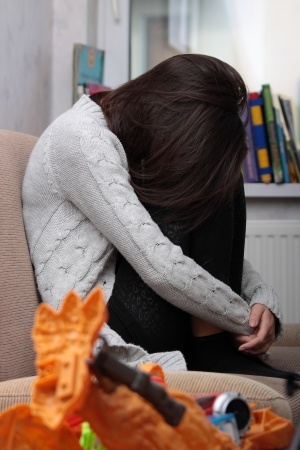This article on postnatal psychosis explains this rare condition and the symptoms and treatment for postnatal psychosis.
What is postnatal psychosis?
Postnatal psychosis is a serious, pregnancy related mental condition, which affects approximately 1 in 1000 women and usually occurs in the first two weeks and always within the few months after a birth or miscarriage.
The woman is ‘out of touch with reality’ and she may be a danger to herself and her baby due to a lack of control over her own behaviour.
This condition is also known as puerperal psychosis. It is unrelated to other mental conditions.
What are the symptoms of postnatal psychosis?
Some of the symptoms will be similar to that of postnatal depression:
- Anxiety
- Feelings of helplessness and being an inadequate mother/partner
- Panic attacks
Other symptoms are those of extreme behaviour, or manic behaviour:
- Bizarre behaviour
- Insomnia
- Hallucinating
- Delusions of thoughts and speech
- Excessive, repetitious behaviour, such as cleaning
What causes postnatal psychosis?
This is not fully understood, but it is thought to be due to a hormonal imbalance at this already emotionally and hormonally charged time.
Post natal psychosis can happen to anyone.
What is the treatment for postnatal psychosis?
Treatment usually is given in hospital, due to the severity of the condition.
In all instances every effort will be made to keep mother and baby together as much as possible.
Treatment is in the form of anti psychotic medication and is necessary to recover from this acute condition. Tranquillizers may also be prescribed in the short term. Any drugs will pass through to the breast milk, therefore if the mother is breastfeeding the baby will need to be closely monitored.
Other treatments may be offered, such as counselling and family therapies.
What are the risks of postnatal psychosis?
- The woman can be a risk to her own health and that of her baby
- Postnatal psychosis may recur after subsequent births
- Occasionally the mother and baby may need to be separated, which can be detrimental to their long term relationships.
- The woman may relapse, or have problems coming to terms with what is happening or has happened to her.
How can I help myself, or my family/whanau/friend with postnatal psychosis?
Seek help early – as soon as you recognise there is a problem. Help is free through the maternal mental health team.
Ensure medications are taken promptly and not stopped prematurely.
Support will be necessary when the woman and baby return home.
Occasionally the mother is able to be treated at home throughout, with constant support.
Useful articles and resources on post natal depression
Click here for information on the Baby Blues.
You may want to consider hypnosis for post natal depression if you’re finding the baby blues are really starting to get you down but you feel like you can work your way through it with a little help.
For information on the rare condition of Postnatal psychosis, visit our article in this section.




